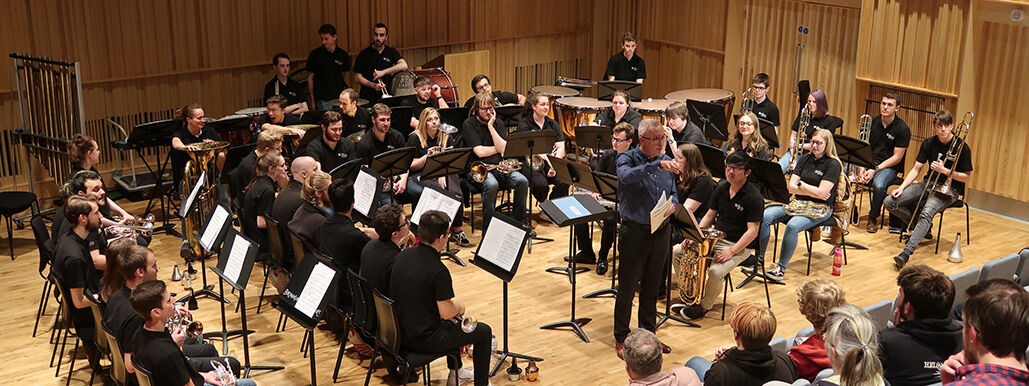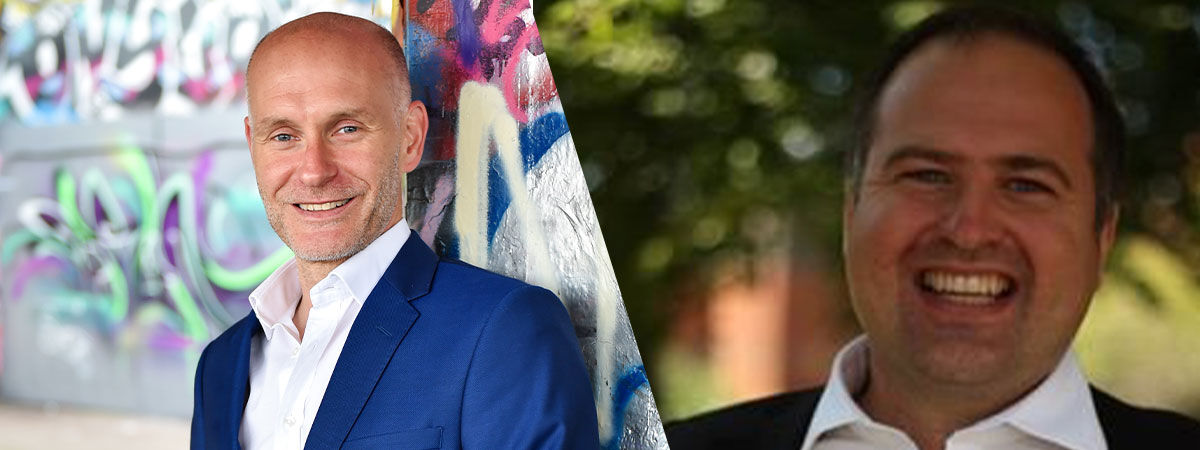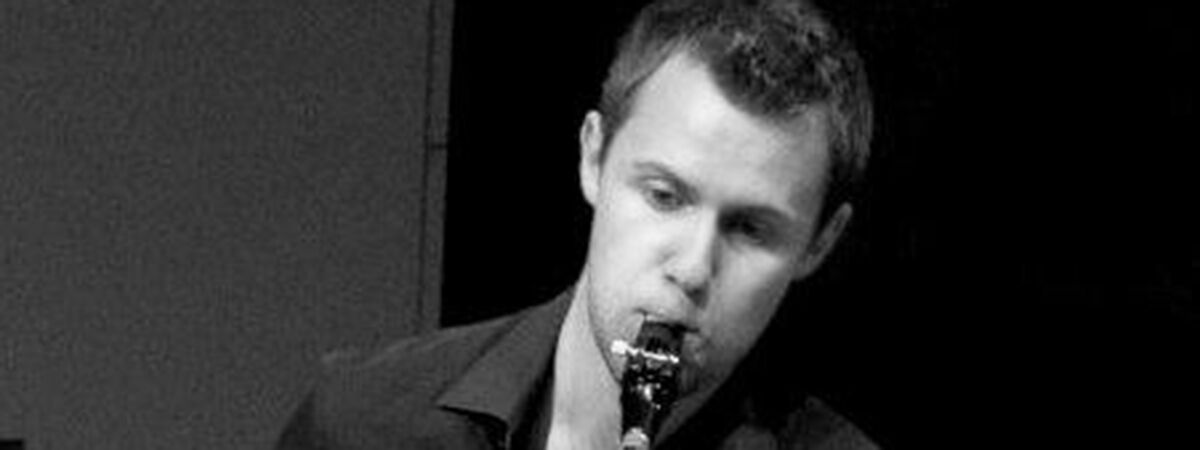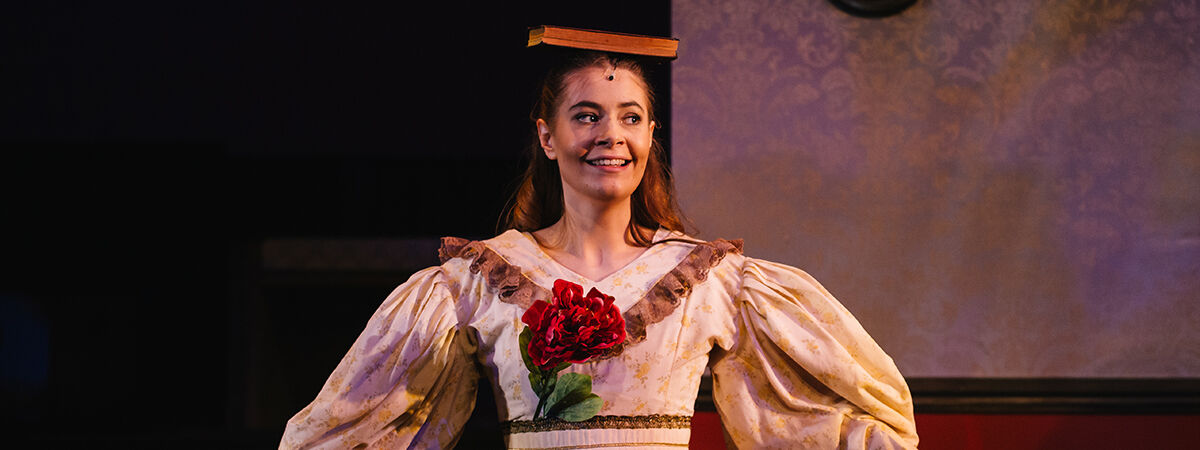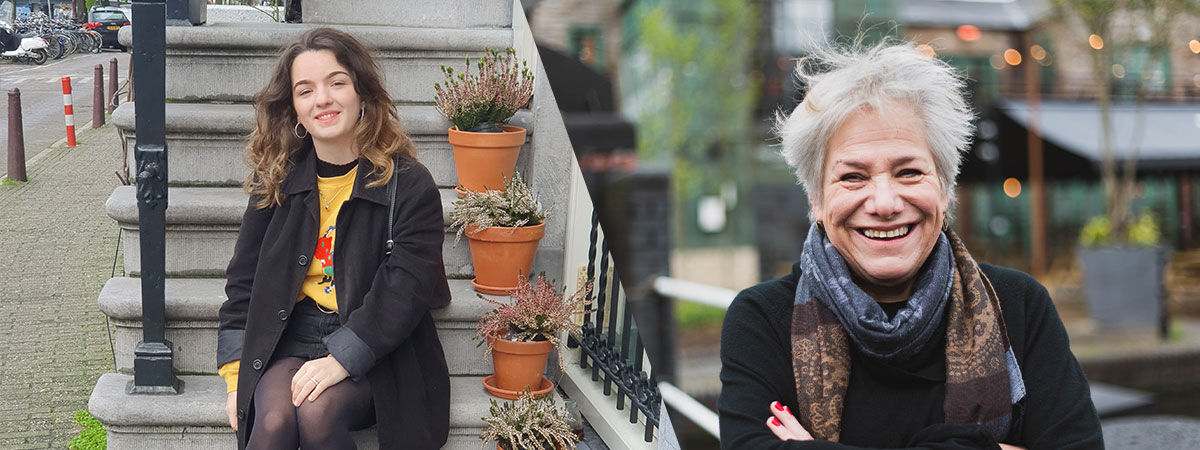Welcome to the fifth instalment of Passing The Baton – in which members of the RBC community interview each other.
Each week, a member of RBC staff or a student will interview a colleague to gain some insight into how the Coronavirus crisis has affected their life, both professionally and personally. The interviewer will then “pass the baton” to the interviewee who will go on to present their questions to the next person along, until finally closing the loop with an interview with our first interrogator.
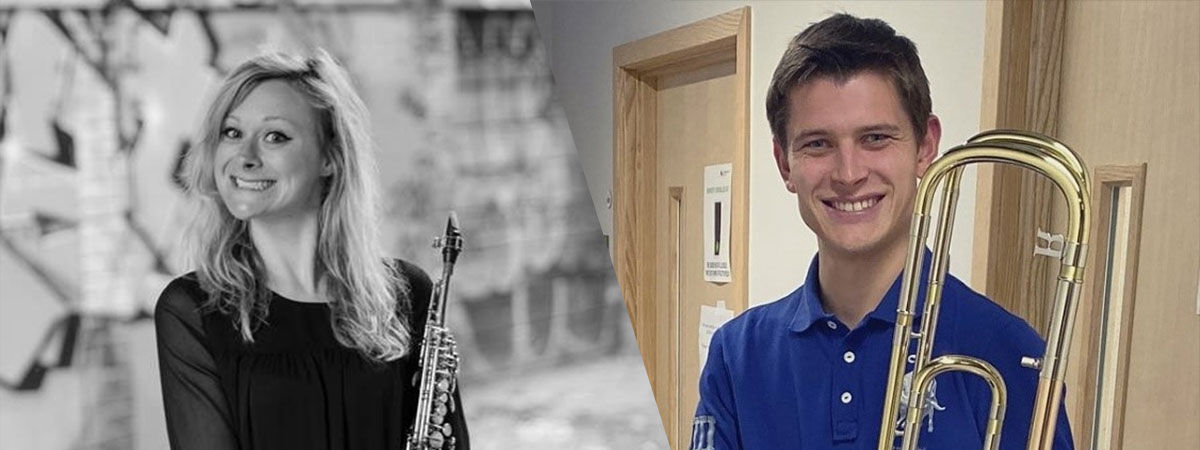
This week, second year MMus Trombone student Thomas Pilsbury talks to RBC Head of Saxophone, Naomi Sullivan.
Thomas Pilsbury (TP)
As a working and clearly flexible musician, how have you found adjusting to the lockdown? What are you doing at the moment?
Naomi Sullivan (NS)
In the ‘normal’ world, I’d rarely be home as the saxophone department is nearly 20 strong so there is always much to do at RBC. Now that I’m working from home, my flat seems less like a space to just store things/lose things, sleep, do laundry - but more of a place that I like to be in. I’ve had chance to potter in the garden. One 3rd floor neighbour is feeding a slowly inflating and quite aggressively vocal squirrel. It’s odd to find luxury during these months.

TP
I noticed in your biography about your work with Sounding Cities. Is there any chance that you could elaborate a bit on this and explain what goes on behind the scenes?
NS
Sounding Cities is a collaborative project, hugely influenced by the city of Birmingham. It’s essentially a saxophone and clarinet duo, but we work with visual artists and sound artists to explore the relationship between music and urban environments, particularly through commissioned works.
We’ve played a series of concerts in Birmingham, as well as a tour of South Africa last summer and some dates in London. We had plans to join a festival in Cape Town in August, but that will have to wait for another time. Our first project looked at Birmingham and Johannesburg and we found curious connections between these cities.
Clarinettist Luke Newby, (RBC alumnus), is now very busy working in community music. So Sounding Cities is increasingly involved with that.
TP
We have been in lockdown for a considerable number of weeks now and it is very easy for every day to become the same. Do you have any advice or suggestions for students/staff to keep every day fresh and varied?
NS
I imagine what entertains me won’t work for everyone. I just have a very general list of daily tasks that reads:
“practise, hoof about/exercise, vex family/friends, make something, learning something”.
Which is quite easy to do as the parameters are cunningly flexible. For example, this morning, before practicing, I learnt I made an excellent cup of coffee, and so then I quickly informed a good friend of this vital creation.
TP
The lockdown has resulted in public events being cancelled for the foreseeable future and there is a great uncertainty about not just when we are going to return to performing in concerts but also the state of the arts. What do you think about the current situation and is there anything that we can do in the interim?
NS
That’s a good question. I’m hopeful that having been starved of live art, people will be hungry to leave their homes and fill venues once we can return to whatever ‘normal’ life is. But in reality, that’s probably an optimistic prospect. The unknown future for so many freelance artists is hard to comprehend. What can the unions realistically achieve for all affected?
And what can we do in the interim? I wish I knew. I’ve got an online concert to prepare and it’s a bittersweet project. I’m not enamoured with the idea of having to film myself in my living room. For me, music is an art of sound. So the compromise here is disheartening. But it’s a programme of new music by composers who I’ve met and worked with. And I want to bring their music to life – and much of the programme has been created specifically for this time.
I’m trying to stay positive for my students and help them as much as I can. They are the ones moving into the music industry so I’m trying to encourage them to think creatively and as proactively as is possible.
TP
What are you doing to relax and unwind during this time?
NS
I live next to Crystal Palace Park which is perfect for trotting around. I’ve been cataloguing all my music, writing letters and sending tat to friends, making my mother short, ornithological films about London birds. (Mostly being rude about pigeons). So lots of high octane, rock and roll activities…

TP
What are you looking forward to most of all when lockdown is lifted?
NS
I’m hopeful we will respect the enormity of the pandemic by moving ahead, changing priorities, respecting the NHS and addressing the global climate crisis.
And on the other hand, just having fun. Spontaneity seems a pastime of the past. It’s all got very serious (rightly so, of course) and life is a little claustrophobic. I miss being silly in RBC’s saxophone workshops, I miss hearing other musicians playing live music. I’m looking forward to those moments.
TP
Do you have any advice for people who might be finding these times challenging?
NS
I suppose I’ve learnt to ask for advice and help - getting music printed (I’m a sheet music dinosaur), advice about technology, asking my students what they want from online meetings and so on. And I’ve remembered that it is nearly always helpful to make things spoken.
I think there is something interesting in everyone being in similar boats. If we can embrace the mundane, maybe this can alleviate pressure with regards to ambition, so we can learn from looking down, instead of always looking up.
Next week Naomi talks to RBC Head of Piano in Chamber Music, Daniel Tong.
